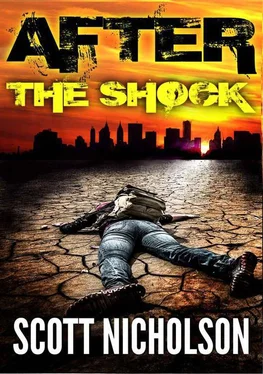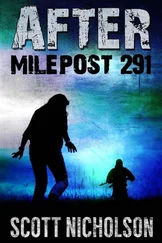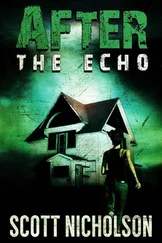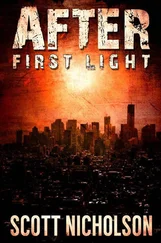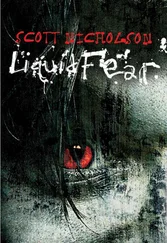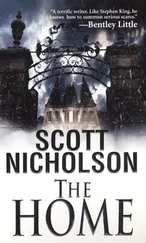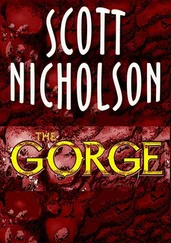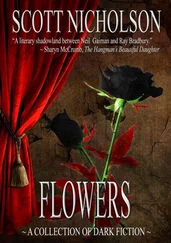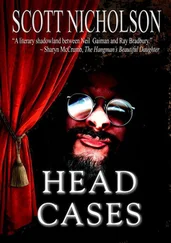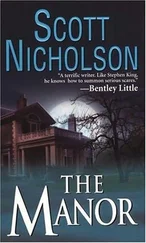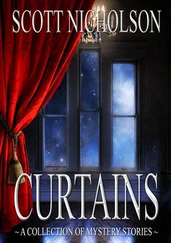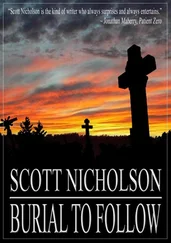Scott Nicholson - The Shock
Здесь есть возможность читать онлайн «Scott Nicholson - The Shock» весь текст электронной книги совершенно бесплатно (целиком полную версию без сокращений). В некоторых случаях можно слушать аудио, скачать через торрент в формате fb2 и присутствует краткое содержание. Год выпуска: 2012, Издательство: Haunted Computer Books, Жанр: sf_postapocalyptic, Ужасы и Мистика, на английском языке. Описание произведения, (предисловие) а так же отзывы посетителей доступны на портале библиотеки ЛибКат.
- Название:The Shock
- Автор:
- Издательство:Haunted Computer Books
- Жанр:
- Год:2012
- ISBN:нет данных
- Рейтинг книги:3 / 5. Голосов: 1
-
Избранное:Добавить в избранное
- Отзывы:
-
Ваша оценка:
- 60
- 1
- 2
- 3
- 4
- 5
The Shock: краткое содержание, описание и аннотация
Предлагаем к чтению аннотацию, описание, краткое содержание или предисловие (зависит от того, что написал сам автор книги «The Shock»). Если вы не нашли необходимую информацию о книге — напишите в комментариях, мы постараемся отыскать её.
The Shock — читать онлайн бесплатно полную книгу (весь текст) целиком
Ниже представлен текст книги, разбитый по страницам. Система сохранения места последней прочитанной страницы, позволяет с удобством читать онлайн бесплатно книгу «The Shock», без необходимости каждый раз заново искать на чём Вы остановились. Поставьте закладку, и сможете в любой момент перейти на страницу, на которой закончили чтение.
Интервал:
Закладка:
“King-size bed.”
“Good.” She sprawled on one side, then curled into a ball with the pillow pulled to her stomach. “You can stay way over there.”
“I’m eating first,” he said. “Sweet dreams.”
“Sorry,” she murmured.
“Huh?”
“I left your Doritos in the lobby.”
CHAPTER SIX
Campbell slobbered over the pork and beans, which were heated in a tin can that had been resting in the embers. The fire was large and crackled with intense energy, and it could have been the primal fire, the first lightning strike that had forever changed the human race. It sent giant fingers of light stippling against the surrounding trees, creating a yellow wall against the black and unknown beyond.
There were four in the group. Donnie, a scrawny guy in a camouflage cap who’d challenged them when they’d entered the camp, had taken his turn at watch while shouldering a mean-looking automatic rifle. A woman named Pam was evidently asleep in one of the tents popped up in the clearing. The group must have settled there for some days, because of the clothesline strung between two trees and a stack of broken limbs piled nearby to feed the fire.
The man who’d stuck the gun in Campbell’s back was named Arnoff. He’d collected their guns after Donnie had demanded they drop them. Pete had been pissed at first, but now he was nursing a beer and gazing into the flames as if he were at a frat-house bonfire before the big homecoming football game.
Arnoff sat across the fire from Campbell, tenderly cleaning a disassembled rifle. “You boys made it all the way from Chapel Hill, huh?”
“We had bicycles,” Campbell said.
Arnoff nodded. “Yep. Saw you through the binocs.”
“That’s why we didn’t shoot you,” said the bald, thin-faced man with huge black spectacles that gave him the appearance of an insect. “We haven’t seen Zapheads exhibit such coordinated behavior.”
“I woulda shot you anyways,” Arnoff said. “Just for target practice. But the professor here said we need to gather as much info as we could.”
“He’s joking,” said the bald man, although Arnoff’s eyes held not the slightest hint of mirth.
“How long have you guys been together?” Campbell asked, eager to change the subject. His stomach wasn’t doing too well with the beans and he already felt bloated and gassy.
“I teach earth sciences at Wake Forest—I mean, I did teach, back when I had students,” the professor said, digging into his shirt pocket for a cigarette. Absurdly, he still wore a tie, as if that one senseless symbol of civilization guaranteed that all the pieces would eventually fit back together. “My colleagues in the department were well aware of the approaching solar flares, which tend to come in cycles. Indeed, it was national news, but like most science stories, it was dumbed down for public consumption.”
“Yeah, we saw that on Yahoo!,” Pete said. “They were talking about the worst solar storm on record, sometime around the Civil War, but they said this one wouldn’t be that bad.”
Arnoff clacked a bullet into the chamber of his rifle. “They never get it straight. Goddamned media. Keep you so screwed you don’t know whether to sell your stocks or buy ammunition.”
“The 1859 solar flare, the Carrington Event, disrupted telegraph communications and burned some poles,” the professor said. “The aurora was spotted all over the country and as far south as Mexico.”
“Those freaky green and purple lights in the sky?” Pete asked. “That make you feel like you’re on a bad acid trip?”
“Yes, caused by charged particles. Other recent solar flares and sunspot events have caused power outages, but no one could have expected anything like this.”
“You mean Zapheads?” Campbell said.
“I mean, ‘all of it.’ Congress had ordered some research and contingency plans in the wake of massive solar disruptions, but that was mostly in the event of satellite problems and the like. Anyone presenting these types of doomsday scenarios would have been classified as Internet wackos and UFO conspiracy theorists.”
“I get the part where it knocked out power and electrical systems, even combustion engines,” Arnoff said. “Sorta like short circuiting the whole world at once. But I don’t understand what it did to people’s brains to turn them into Zapheads. And I sure as hell don’t understand why some of us are more or less still normal.”
“I doubt we’ll ever have those answers now,” the professor said. “Assuming the rest of the globe was affected like the United States, there’s no way to undertake the necessary research.”
Arnoff waved a hand. “Don’t get off on no lecture. Knowing won’t change the facts, and the facts is there are a bunch of Zapheads out there wanting to kill us.”
“You said they’ve changed,” Campbell said. “What did you mean?”
“They seem to be adapting,” the professor said. “You might have noticed yourself, if you’ve had repeated encounters. Just after the flares, the Zapheads”—his face curdled as he uttered the name, as if he found it distasteful and scientifically inaccurate—“engaged in violence at random, attacking any living thing in their immediate vicinity. But we’ve observed them engaging in communal activity, as if they are organizing.”
“That’s why I almost shot you,” Arnoff said. “Where there’s one, there might be more.”
“Great,” Pete said. “Nice to see us humans sticking together.”
Campbell gave a small shake of his head, trying to signal Pete to shut up. While Arnoff was a loose cannon, at least he was a cannon—Campbell hadn’t felt this safe since the apocalypse had started. He set the empty can of beans aside and licked the sauce from his fork.
“How many of us do you think are left?’ he asked the professor.
“It’s difficult to estimate. I met Mr. Arnoff between Winston-Salem and Greensboro, traveling east on Interstate 40. He was headed for the coast, figuring he’d find a little island and play Robinson Crusoe until things got sorted out. Thirty miles from here, we found Pamela and Donnie four days ago, hiding in a school bus. And now here are you two. It’s a small sample size, but I’d guess maybe one person in a million was immune to the electromagnetic disruptions.”
“Holy shit,” Pete said. “That’s sort of like winning the lottery.”
“Or maybe losing, in this case,” Arnoff said. “I always thought the world was too crowded, but I don’t like being outnumbered.”
“Which was my next question,” Campbell said. “We met a few other survivors, but we’ve seen a lot more Zapheads.”
He told them about their encounter with the Zaphead in the van, and Pete punctuated the story with sound effects to describe how they’d beat the woman to death. He didn’t embellish too many of the details, although he came off like the hero of the tale.
“Good for you,” Arnoff said. “I never woulda figured you had it in you.”
“Maybe we’re adapting, too,” the professor said, drawing on his cigarette. “Maybe the need to kill will turn us into Zapheads. The lingering magnetic fluctuations could be turning the kettle of our brains up to a boil as we speak.”
Campbell didn’t like the idea that his internal circuitry might even now be mutating into something treacherous.
“Don’t go getting all negative on me,” Arnoff said, leaning his rifle on a stump. “Things are bad enough already. Let’s keep it on the sunny side.”
“Ironic, given the fact that the sun is the cause of our problems,” the professor said. He flicked his cigarette butt into the fire.
“So, you guys have been walking?” Pete asked, slurring his words a little.
Читать дальшеИнтервал:
Закладка:
Похожие книги на «The Shock»
Представляем Вашему вниманию похожие книги на «The Shock» списком для выбора. Мы отобрали схожую по названию и смыслу литературу в надежде предоставить читателям больше вариантов отыскать новые, интересные, ещё непрочитанные произведения.
Обсуждение, отзывы о книге «The Shock» и просто собственные мнения читателей. Оставьте ваши комментарии, напишите, что Вы думаете о произведении, его смысле или главных героях. Укажите что конкретно понравилось, а что нет, и почему Вы так считаете.
